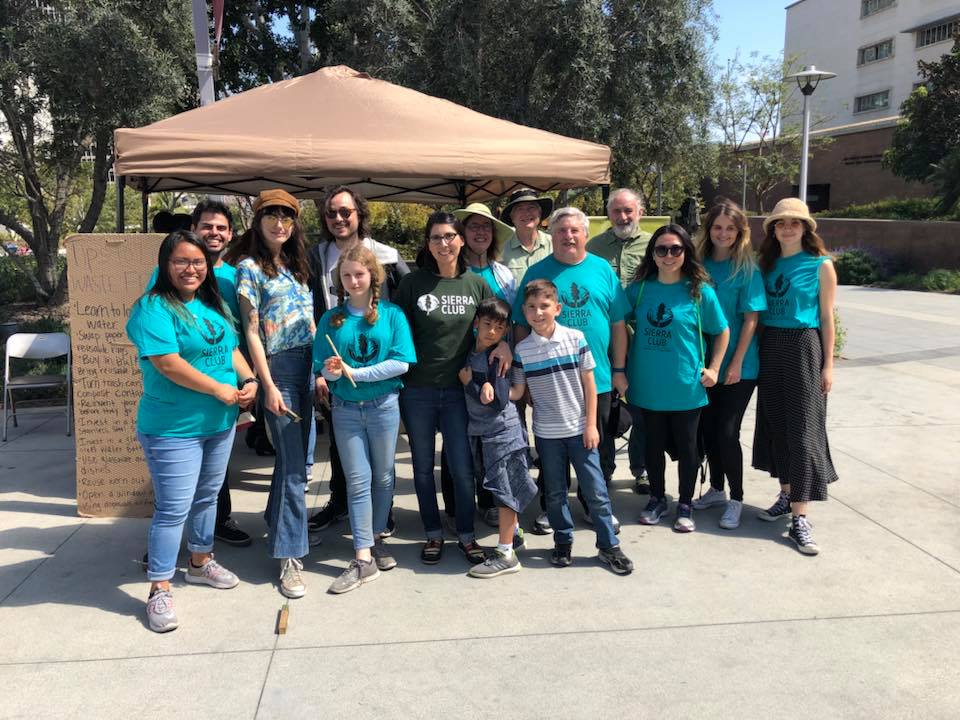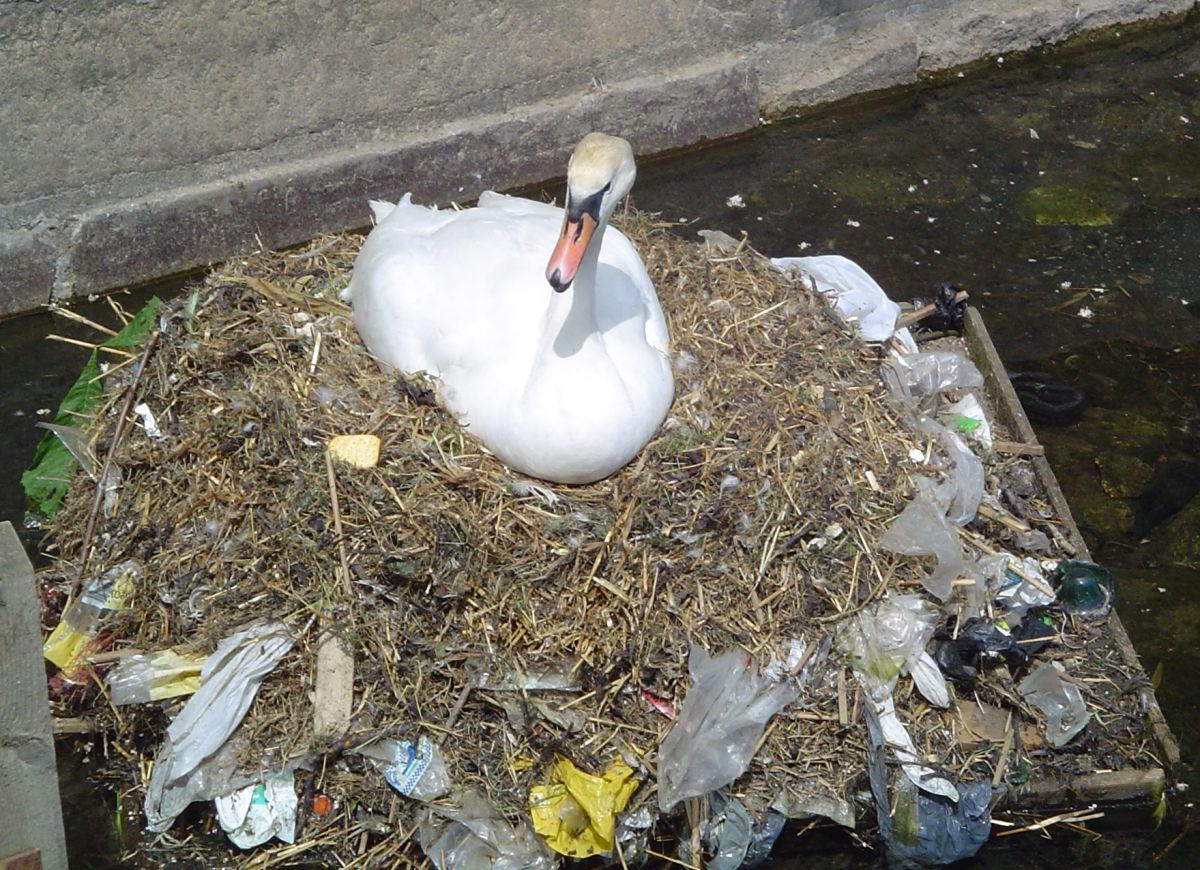Why California fights the plastic waste stream (and why you should too)
 |
| Sierra Club Angeles Chapter volunteers and staffer Angelica Gonzalez (center, dark green T-shirt) led a Zero Waste Fair on April 7 at Grand Park in downtown L.A. Hundreds turned out to learn how to become more sustainable in their day-to-day lives. |
You are what you eat. Well, if that’s the case, it may horrify you to know that you’re probably part plastic straw or cigarette butt or even part fleece sweater. On the bright side, at least you won’t need to buy sweaters anymore!
Plastic pollution has become so pervasive in California it affects nearly every river, stream, park, and street. Though most plastic waste is generated on land, most of it will eventually make its way to the ocean.
 The World Economic Forum predicts that by 2050, there will be more plastic in the ocean than fish if we don’t act soon. New research is already showing that plastic and its associated toxins are ubiquitous in the ocean’s food webs and that includes seafood sold for human consumption.
The World Economic Forum predicts that by 2050, there will be more plastic in the ocean than fish if we don’t act soon. New research is already showing that plastic and its associated toxins are ubiquitous in the ocean’s food webs and that includes seafood sold for human consumption. To help ensure we don’t turn into walking plastic straws, the California legislature has introduced several bills to prevent millions of metric tons of plastic trash from ending up in the ocean.
This diverse portfolio of solutions, which is supported by the state’s environmental community, includes a jab at the number one litter item: cigarette butts. AB 2308 would ban the sale of cigarettes with filters. Other bills propose banning smoking products in all of California’s state parks and beaches altogether.
Microscopic plastic fibers, or microfibers, from fleece clothing are a key type of plastic pollution and a threat to the environment. AB 2379, is a simple solution, which would require labeling and care instruction for fleece in order to reduce microplastic fiber shedding.
On the food and beverage packaging front, AB 2779 would require that all single-use plastic bottles have their caps tethered and AB 1884 would require that dine-in restaurants give consumers a choice on whether they would like to receive a straw or not. SB 1335 requires that all state parks and beaches serve only recyclable and compostable food packaging.
With an estimated 8 million metric tons of our plastic waste entering the oceans every year, Sierra Club is here to support these creative and absolutely necessary solutions.
Eddie Moreno wrote this piece for Sierra Club California's Capitol Voice.
RELATED STORIES:
Blog Category:



Add new comment